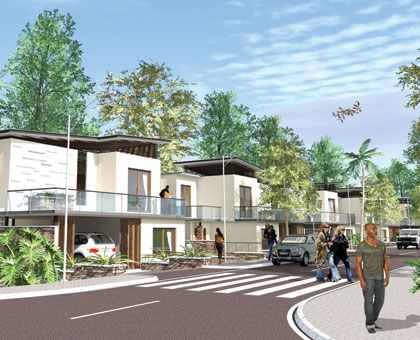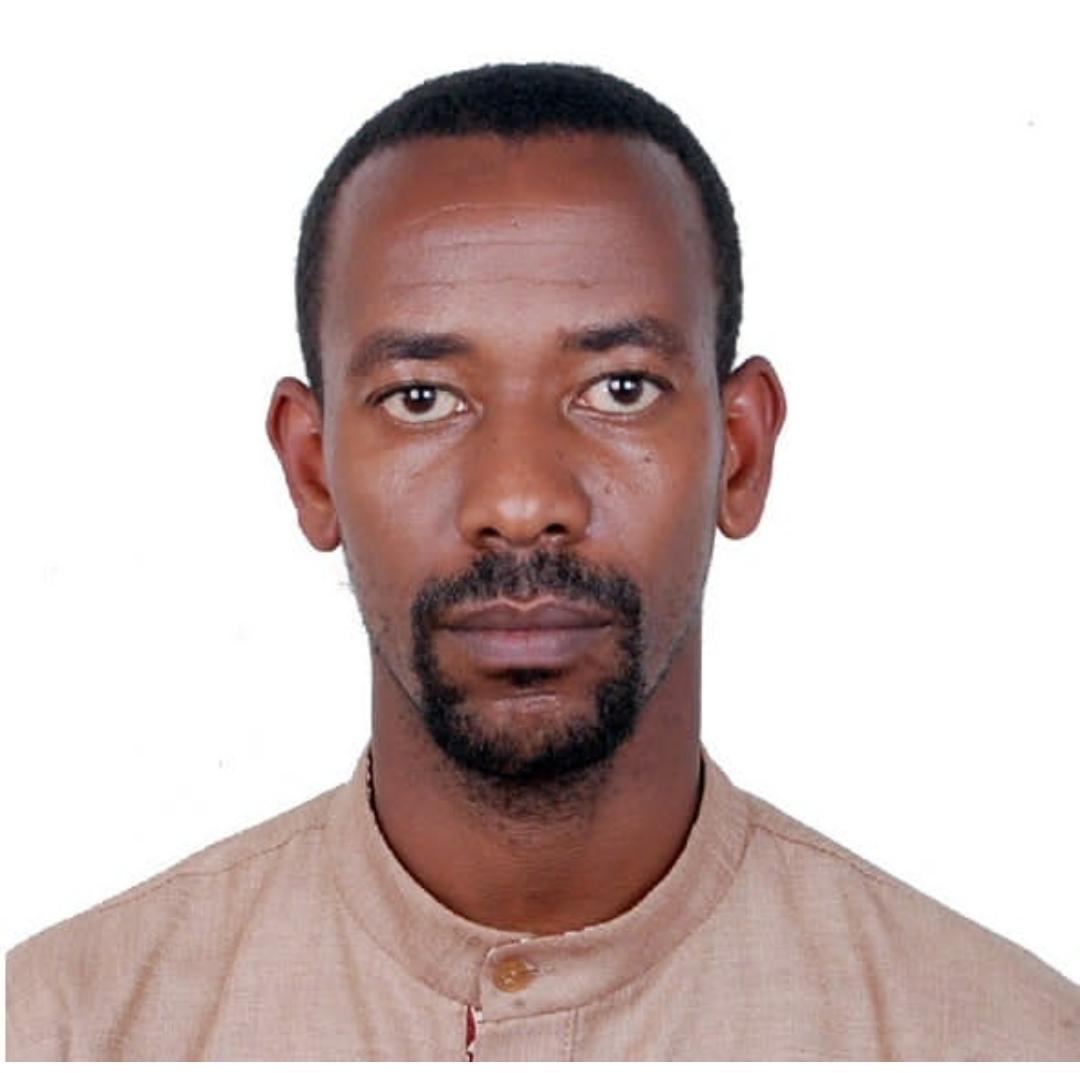An uphill task that awaits the new Director General of the Rwanda Social Security Board is to convince subscribers to the National Pension Fund that investing in high-end homes is the best option at the moment.


An uphill task that awaits the new Director General of the Rwanda Social Security Board is to convince subscribers to the National Pension Fund that investing in high-end homes is viable at the moment.
The announcements that Vision City homes are to be constructed at the posh Gaculiro suburb are now up for sale, has angered a cross section of the City’s dwellers who feel the pricing of the houses is way out of reach.
--
READ ALSO: Will you ever own a home in Kigali?
--
RSSB created a subsidiary company – Ultimate Developers Limited - to construct the of Vision City homes. The multi-million dollar project comprises apartments, semi-detached houses and luxury villas.
The least expensive is a two-bedroom apartment going for Rwf124 million ($179,000) and the most expensive is a five-bedroom luxury villa that goes for Rwf398 million ($590,000).
While most people The New Times spoke to are in agreement with RSSB venturing into projects with high returns, they question the timing of the homes, considering the acute shortage of affordable homes in Kigali city.
According to a report by the City of Kigali, there is need for at least 344,068 new housing units by 2022 to accommodate the rapidly growing population.
The report, released in 2012, indicated that half of the 223,000 houses in Kigali are in good shape, 32 percent in dire need of upgrading, while the rest are low quality structures in slums that need to be replaced.
With an annual population growth rate of 5.7 percent, the City of Kigali projects the population of the country’s capital to rise from the current 1.1 million to two million by 2022.
While launching the report, the city mayor, Fidel Ndayisaba, said being at the centre of the country’s development, Kigali needed to compliment its fast-growing economy and population by employing a systematic approach to affordable housing for all city dwellers.
"A key element for sustainable growth of Kigali is the provision of decent housing for all,” Ndayisaba said.
He said the CoK was embarking on a bold development vision which will be based not only on constructing buildings, but also ensuring that residents live comfortably in quality low-cost housing units.
"Current supply of houses is about 1,000 units per year. This is low compared to an estimated demand of 35,000 new residential houses annually,” the report stated.
There is no doubt that the Vision City homes will help reduce the housing shortage. However, going by their price, only a handful of the city dwellers can afford them.
And, the mere fact that there is no shortage of luxury accommodation when compared to the demand for affordable homes, many have been left wondering the rationale behind the timing of the high-end homes.
If a potential Vision City home buyer is to approach one of the banks for a mortgage facility, their net monthly earnings should be in the range of Rwf4 million.
"If we consider the largest mortgage loan of 20 years with interest rate, exclusive of the fire insurance, someone will be required to pay Rwf1,920,000 (monthly) for the two-bedroom apartment that costs Rwf124 million,” said Beatrice Chege, head of Mortgage at KCB Rwanda.
The amount is calculated at an interest rate ranging between 14 per cent and 18 per cent.
"Our (KCB) cutoff amount deducted from someone’s salary should not exceed 50 percent of their net pay which implies that, for someone to acquire a mortgage loan for Rwf124 million, they should have a net pay of Rwf 3,840,000 a month at a minimum,” she noted.
Chege added that her bank considers a 50 per cent cutoff of the salary as a way of ensuring that clients can acquire a decent home.
And, not many banks will accept taking 50 per cent of your pay to cover your mortgage fees.
Rwanda Development Bank, one of the financial institutions with the lowest interest rates for mortgages, will give you a loan to buy the most affordable apartment at the Vision City if you can raise at least 10 percent of the cost of the house, which is Rwf12.4 million.
"In addition to the down payment, the bank will give you Rwf111.6 million payable over 20 years with an interest of 16 per cent, with a monthly installment of 1,552,624,” an investment banker at BRD told The New Times.
He added that one can only get this money if they earn more than Rwf 4.6 million.
Unfortunately, not many Rwandans in need of homes earn that amount of money unless they have accumulated savings for over 10 years, saving more than Rwf650,000 each month.
Despite the concerns, however, Moses Kazoora, the RSSB communications director emphasised that the target for the Vision City project are high–end citizens who have the money and, in return, all pensioners will benefit.
"This money will lose value if we decide to keep it. We have, therefore, decided to invest it so that the returns are shared by all pensioners,” Kazoora said.
"The profits we make in these projects are spent on health insurance and pension benefits which are shared by the entire family of the contributors. This is a generous package,” Kazoora argued.
Kazoora broke down details of how a pensioner benefits when their money is invested, saying that after contributing remittances for 15 years, the contributor is entitled to 30 percent of their monthly remittances.
After the initial 15 years, the beneficiary receives a 2 per cent increment on top of the 30 percent every year and the remittances are calculated on the salary of the last 3 years.
But, if the motive is profit, experts in the industry argue that there is profit for investors in more affordable housing.
The Director-General of the Rwanda Housing Authority (RHA), Esther Mutamba, insists there is money to make from affordable housing.
She added that the government intends to trigger investors’ appetite in affordable housing.
"Investors are reluctant to invest in affordable houses for fear that they may not get buyers. So to stem these fears, government is considering a public–private partnership (PPP) venture,” said Mutamba.
She added that, under PPP deals, government will source for the land, service it and the investor will come in when most of the infrastructure are in place. These include putting tarmac on roads and electricity network.
Kazoora is quick to calm the fear, saying the construction of the luxury homes should not worry dwellers as plans are underway to construct homes for middle and low income earners.
"Vision City is a high-end project and we conducted a study before venturing into it. There are several factors that are attached to the price. These include expropriation, the desired city master plan, several infrastructures like a state-of-the-art commercial centre, schools and hospitals, and also considering that most of the construction materials are imported,” Kazoora says.
RSSB may have an upper hand in accessing resources for investment. However, with the private sector too, eyeing the high-end clients, experts argue that the pension body will have to factor in the element of public interest, if more average city dwellers are to own a home.
Since 2008, only two estates that can benefit the middle class have been put up. They include the 250 low cost units in Batsinda in Gasabo District that were built in a joint effort of City of Kigali, Rwanda Social Security Board and former Rwanda Housing Bank.
Egide Gatsirombo, the chairperson of the Institute of Real Property Valuers in Rwanda, explained why it is a hard to ask private investors to put their money into affordable housing.
"Investors have no sentiments. They will do what gives them quick returns not what is recommended. To woo them into affordable houses, calls for several incentives,” Gatsirombo said, adding that options like easing the acquisition of loans at a low interest rate to real estate investors as well as offering them free land will go a long way towards addressing Kigali’s housing shortage.
Kigali’s population is projected to be 3.8 million by 2040 and, if no affordable houses are constructed, it is estimated that 2.8 million people will not have where to stay by 2040.


